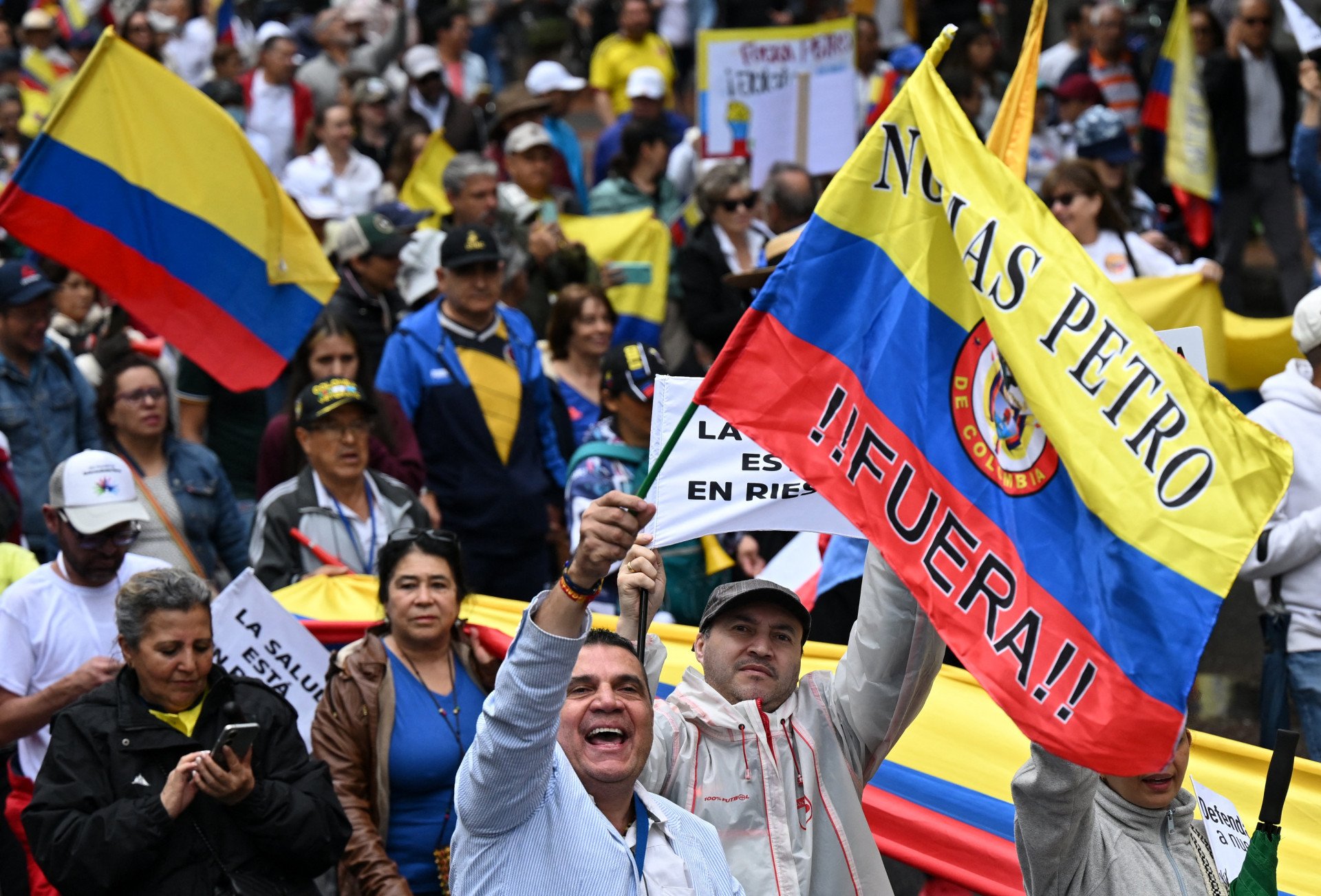
People protest against Petro’s governmentAFP
Published 04/21/2024 18:05
Hundreds of thousands of people protested this Sunday, the 21st, in the main cities of Colombia against the government of Gustavo Petro, at a time of falling popularity, after 20 months of management.
The diverse group of protesters included medical organizations, centrist political forces, the opposition and former left-wing allies with diverse criticisms: they reject his projects to nationalize the health service, his initiative to convene a National Constituent Assembly and peace negotiations with groups armed, who did not stop the violence.
“I voted for change, for Petro, but we are still in the same situation. I’m marching because I still believe that Colombia has some hope,” said Martha Estrada, a 64-year-old retiree in Bogotá.
Petro came to power in August 2020, as the first left-wing leader to govern a country traditionally led by conservative elites.
With 60% disapproval, according to the research company Invamer, the president has lost support from political forces in Congress and also on the streets, where he is usually very active.
In Cali (southwest), Medellín (northwest), Barranquilla (north), Bucaramanga (northeast) and other capitals, protesters gathered with Colombian flags, white t-shirts and the cry “Out, Petro!”.
‘March of the white coats’
One of Petro’s reform projects, health, divided the country when he began to implement several of its central axes administratively, due to the difficulty of obtaining support in Congress.
The president wants to reduce the participation of private entities in the provision of health services. In recent days, he has made interventions in several entities that act as resource intermediaries between the State and hospitals, in order to control their budget.
Experts agree that the system is collapsing and needs reform, but some question how the government intends to do it.
With the name “march of the white coats”, the doctors expressed their “disagreement with the current management of the health system by the government”. According to Invamer, 56% of those interviewed in April rejected government intervention “in some of the Health Promoting Entities (EPS) in Colombia to directly manage the system.”
“I’m here as a citizen, doctor and Colombian. As a doctor, I see the decline, because there are no medicines to give to patients, because they wait too long for care”, reported Julio Rivero, 35 years old, in Bogotá.
Fragile peace
The government’s ambitious “Total Peace” policy to end six decades of armed conflict breeds discontent. Its detractors reject the concessions received by armed groups during the peace negotiations, despite frequent violations of the agreements at dialogue tables and their unwillingness to abandon their weapons.
Negotiations with the rebels of the National Liberation Army (ELN) and the dissidents of the Revolutionary Armed Forces of Colombia (FARC) have gone through several crises, due to murders, kidnappings and attacks on public forces. The country is “getting worse” for around 70% of Colombians, according to Invamer.
The protests also occur in the midst of a water crisis due to a severe drought, causing more than 10 million people to ration water in Bogotá. The rains returned over the weekend, but were not enough, authorities said.
The president ordered the suspension of energy exports to Ecuador and Petro decreed, last Friday, a “civic day”, with a request to save water and energy and “go this weekend to places in other river basins, in order to reduce consumption pressure” in Bogotá. The measure was seen by opponents as a way to target this Sunday’s protests.
